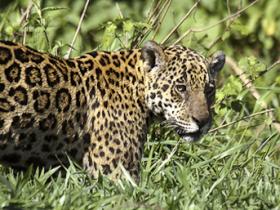Wetlands - volunteer for wetlands & help preserve the habitat for wetland animals
| Wetlands. Not much is known about them and many people tend to think that wetlands are wasted ground, which could be made into something more useful. But they are home to many animal species & plants - and wetlands are important to people - and there is plenty each of us can do to help keep them well, healthy and to help them thrive. World Wetlands Day on 2nd February aims to raise public awareness of wetland values & benefits, and of the Ramsar Convention, which was set up in 1971 to provides the framework for national action and international cooperation for the conservation and wise use of wetlands and their resources. |
| What are wetlands? Wetlands include rivers, streams, canals, lakes, ponds, peatlands, support bogs, fens, swamps, reedbeds, marshes, floodplain meadows, wet woodland, estuaries, wet grasslands, oases, deltas, coastal waters, tidal flats, near-shore marine areas, mangroves and coral reefs. They also include man-made sites such as fish ponds, rice paddies & reservoirs. Wetlands may be still bodies of water or flowing Rivers and streams provide wildlife with ‘corridors’ which they can use to move between fragmented habitats. As these dry up or are drained, wildlife hit problems - they can't move between these habitats. | Give a Virtual Gift |
| Why do wetlands matter? Wetlands provide a clean source & supply of water for people & animals but this water needs careful managing & monitoring to ensure there is always plenty of it when and where it is needed. People can benefit from wetlands by having food, fresh water & building supplies, plus wetlands help with water purification, and act as flood defences & they also help control erosion. Where are wetlands? There are 197,349,782 designated hectares of wetlands around the world, and 2,066 sites designated for the list of wetlands of importance. This PDF lists where wetlands are and Wetlands International has a world map showing where wetlands are globally |
| Which species live in wetlands? UK wetlands and waterways are home to many different species such as fish e.g. brown trout, eel, stickleback, pike, grayling, roach, perch, salmon. You'll find otters (at night), water voles, wetland birds, and amphibians. |
|
| Why do species living in wetlands need help?
|
| Key things you can do:
Which organisations are involved in conservation in wetland areas?
|

